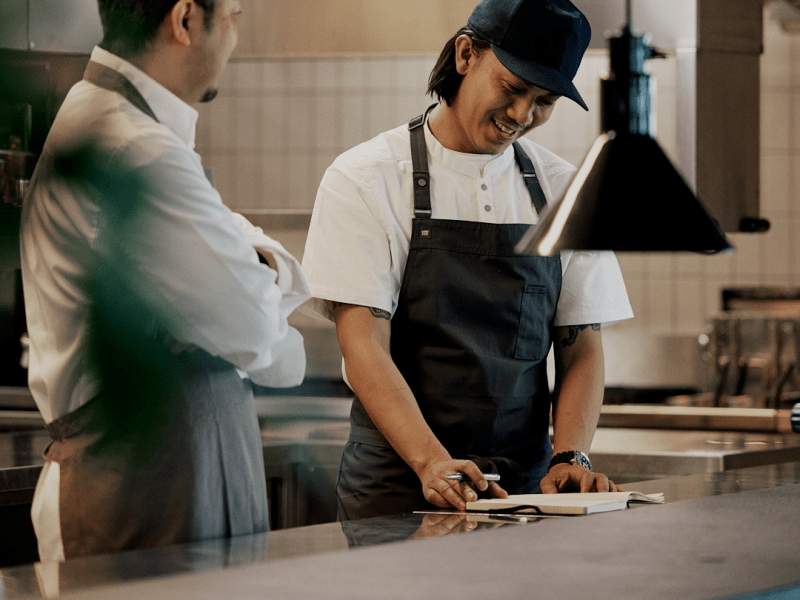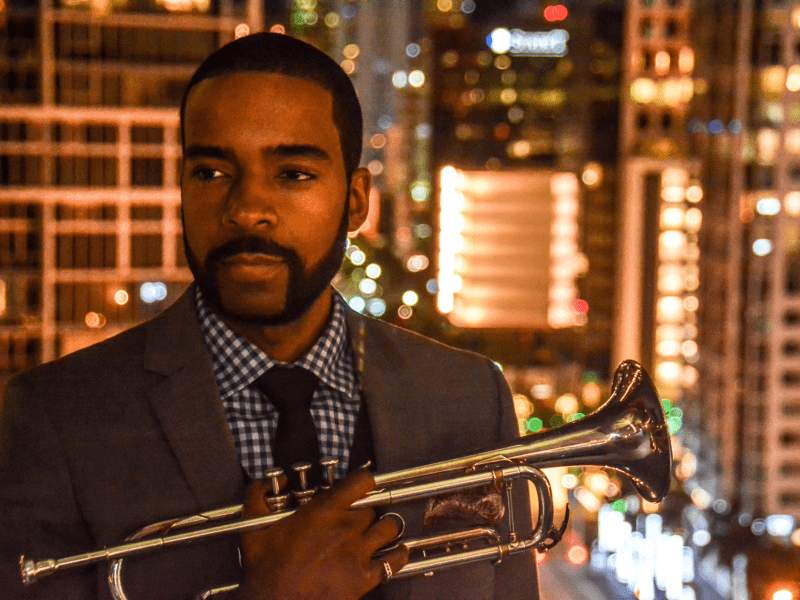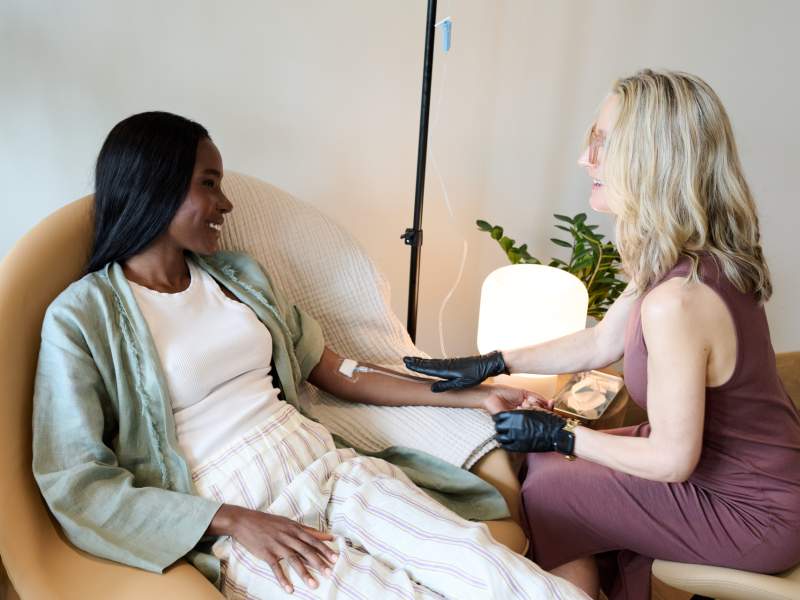Green Spaces & Transportation for All
The second part of a series of articles discussing the inequities within the environmental movement, why we can’t protect our planet without addressing them directly, and what we can do about it.
As momentum builds within the intersectional environmental movement, it’s necessary to acknowledge the role of racism in the world of public lands and transportation. It’s no coincidence that communities of color have carried the weight of issues they have the smallest part in creating, and historic exclusions to green spaces and safe transportation play a huge part in that.
Until we acknowledge and take action to consciously reverse inequitable trends in this space, BIPOC communities will continue to be uniquely jeopardized, immobilized, and marginalized.
The good news is several cities across the country are taking action. For the sake of continuing momentum, we’re diving into some of the uplifting progress that’s been made and how you can help to fight for equitable access to public lands and mobility.
After all, we can’t fight the climate crisis without amplifying underserved voices.
What’s the issue with green spaces?
Not only have BIPOC communities been pushed towards the nation’s most polluted areas, they’ve been historically absent from U.S. national parks and public lands. While people of color make up roughly 40% of the U.S. population, almost 70% of people who visit public lands are white.
The legacy of inequitable land access traces back to the direct removal of Native Americans and Africans from their land and persisted through legislation and targeted violence around the Civil War era.
Today, economic inequality, legalized segregation, and racial violence continue to perpetuate the gap in access to natural spaces between BIPOC and white communities. As our friends at the NRDC eloquently state, “Mother Nature has never been man's to give,” and it’s essential to fight for change together — as allies and members of the BIPOC community.
To inspire this fight for change, let’s explore some of the exciting progress and potential in this space:
• The appointment of Deb Haaland is nothing short of historic. As U.S. Secretary of the Interior (and the first Native American cabinet secretary), she represents tribes that have been subject to environmental injustice and systemic silencing. She inspires hope for restoring the connection between historically excluded communities and the natural world.
• Current administration priorities promote the fight for racial equity across the economy starting with a $1.7 trillion investment in climate and environmental justice (over 10 years) and the creation of the Civilian Climate Corps.
• The Parks, Open, and Urban Space Equity Group united to fight for more inclusive open spaces. Their work aims to protect diverse communities and prevent green gentrification.
While these large-scale achievements continue to do their thing, let’s talk about what you can do to keep the momentum going.
What can you do?
1. Hold the administration accountable. Through outreach, advocacy, and voting, place pressure on the administration to address systemic barriers for BIPOC communities within our park systems and ensure that conservation programs are accessible for all. One important way to advance justice in green spaces involves supporting the Land and Water Conservation Fund (LWCF).
2. Support Organizations Committed to Change. Get to know organizations like Every Kid Outdoors and Community Nature Connection that offer outdoor programs to children from low-income families.
3. Scroll with intention. If you’re already spending time on social media, make sure to support equitable movements. Explore the #DiversifyOutdoors movement and pledge to support BIPOC communities in the outdoors.
Public lands play an essential role in our connection to our communities and the natural world. As a brand that wholeheartedly believes that our connection with nature is both restorative and necessary, we encourage you to learn more about this ongoing issue as we do the same.
What’s the issue with transportation?
All of the issues described above are exacerbated by the lack of investment in clean and accessible transportation in underserved areas. Elderly, disabled, and BIPOC communities face barriers in accessing safe and affordable transportation.
This legacy of exclusion was largely shaped by the boom of automobile ownership around the 1950s. Income differences allowed white residents to purchase cars and continue to access better jobs. This increased the income gap and pushed BIPOC communities further away from opportunities and public transit. Racist transportation policies and investments have continued ever since.
Decades later, it sometimes feels like no progress has been made, but as we continue to fight for equitable transportation, we have to fuel the journey with inspiring stories.
The Bloomberg Philanthropies American Cities Climate Challenge has helped accelerate climate action in 25 U.S. cities by focusing on equitable transportation programs. Below are some participating cities and projects:
• Washington D.C. launched the DC Transportation Equity Network, which amplifies the voices of the community on transportation equity issues.
• Philadelphia invested in Transit Forward Philly, which won free transit for the city’s youth and helped build out bus-only lanes.
• San Diego adopted the Mobility Choices ordinance, which invests in safe walking and biking for marginalized communities.
• St. Louis secured federal funding to assist low-income seniors in overcoming barriers to using electric vehicles.
• Cincinnati, Denver, and San Antonio created plans for equitable access to electric vehicles with support from the Climate Challenge.
You can visit the Climate Challenge website to keep up with the ongoing Climate Challenge projects and progress and get your daily dose of hope!
What can you do?
We hope it’s empowering to know that transportation-related change starts at the community level. Here are a few things you can get started with:
1. Acknowledge and discuss intersection. Groups that fight for safe transportation should focus on uplifting low-income communities and communities of color. Groups that focus on social justice and equity should prioritize safe transportation options. Be sure to discuss these intersections in your community groups.
2. Engage your community. Go beyond traditional meetings and amplify the voices of impacted communities by reaching out and understanding their main concerns. This is necessary for promoting inclusive engagement.
3. Get involved in events in your area. Keep an eye out on the TransitCenter’s events page. In the past, they’ve gathered in cities across the country to connect citizens, civic leaders, and public leaders to advocate for just and sustainable transportation.
If this information seems overwhelming, a simple search for “how to advocate for equitable transportation in my area” can go a long way.
The fight continues.
Always remember that generating awareness is the first step towards a more equitable environmental movement. As we continue to learn and discuss related topics as a brand, we hope you’ll look out for future articles and opportunities to learn about climate justice in The Field Guide. We’re grateful to be on this journey with you!












